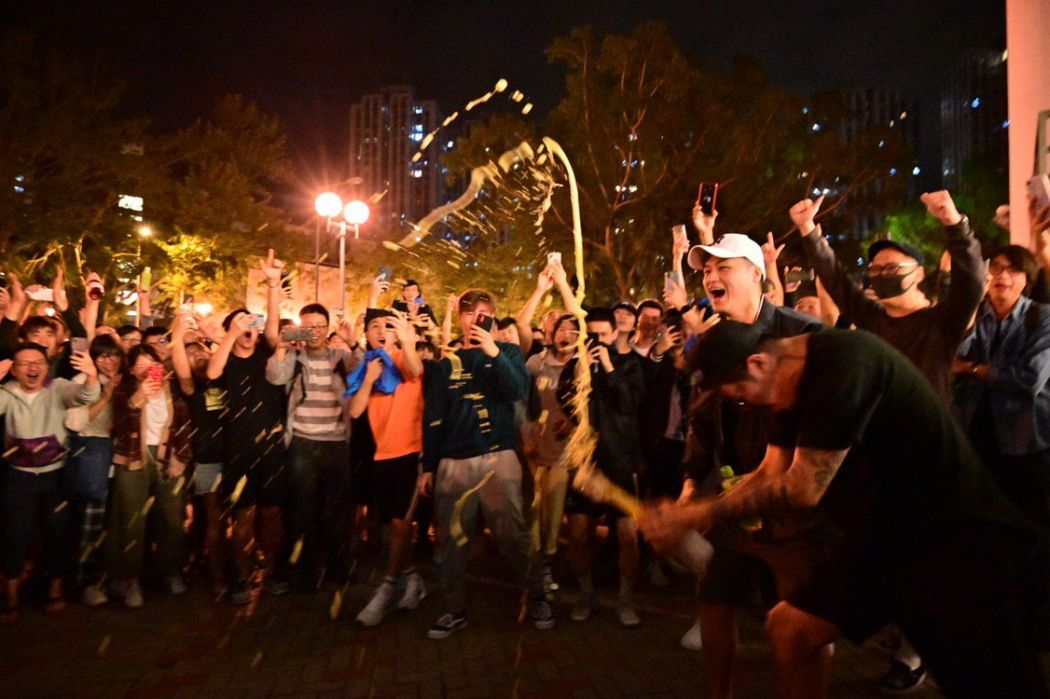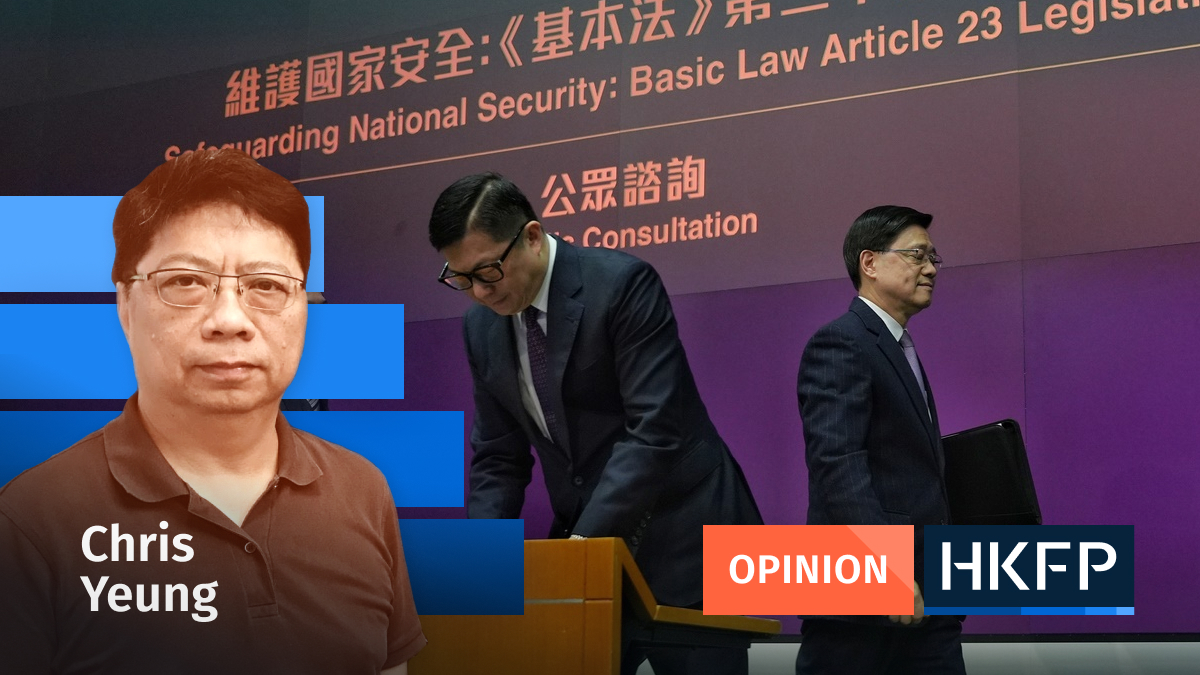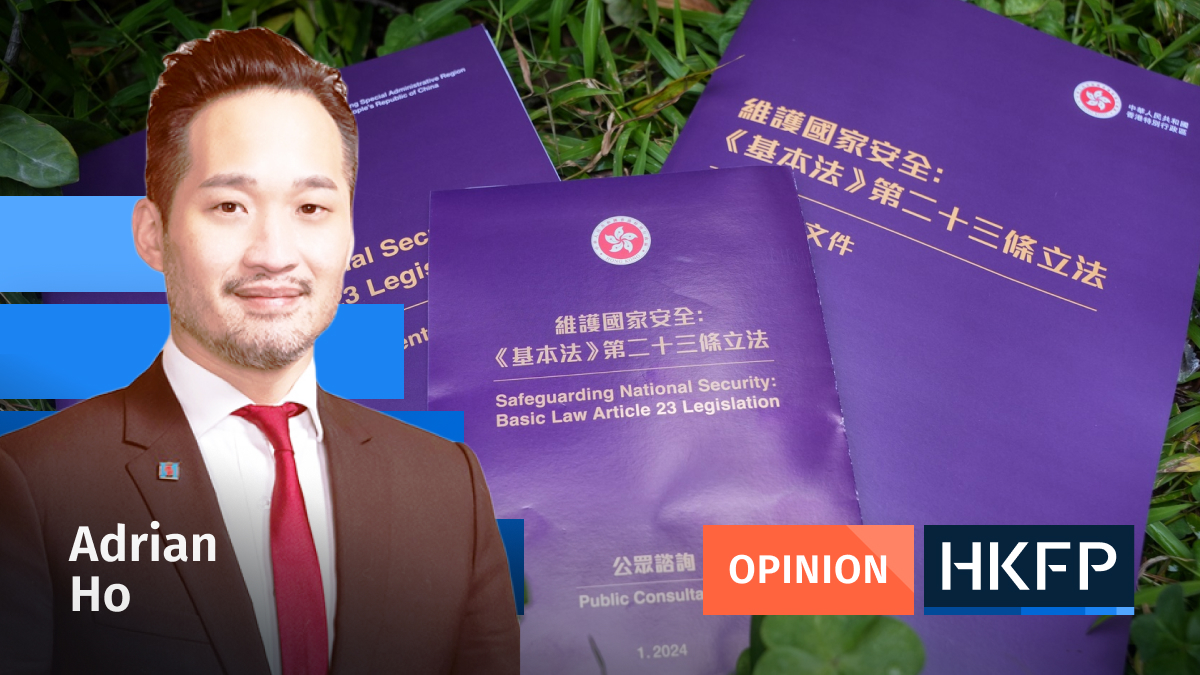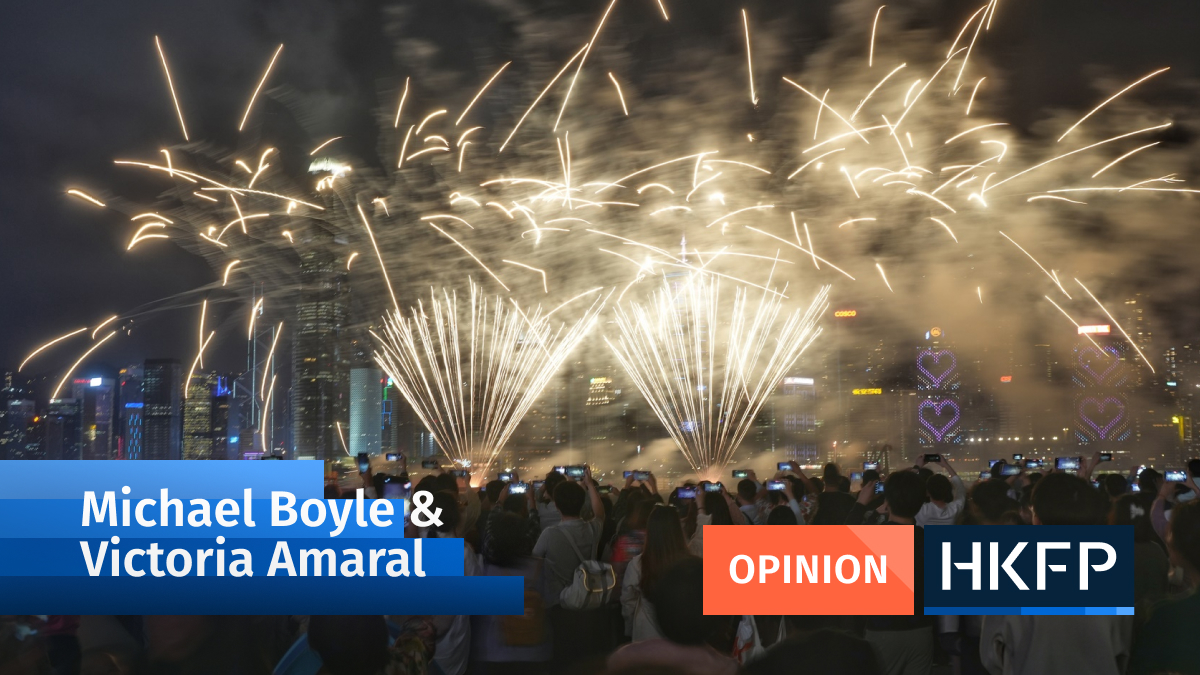Was it always going to turn out like this? The effective termination of the One Country, Two Systems concept, the trashing of the electoral system, the clampdown on civil society and, well, all the rest of it. Twenty-five years on from the foundation of the Hong Kong Special Administrative Region, this question is asked with a mixture of despair and wonder.
Let me confess that I have always been a relentless cheerleader for Hong Kong. I really never thought that the unique entity created on the tip of the world’s largest nation could be shuttled backwards quite as forcibly as it has been. When people airily declared Hong Kong to be dead, I was tiresomely around to object and to point out that killing the Hong Kong spirit was an enormously challenging task.

Not for the first time, I was wrong. Wrong in spades, as it turns out, because even hardened cynics found it difficult to envisage the speed and all-encompassing ferocity with which Beijing has decided to bring vibrant Hong Kong to heel.
And yet with the benefit of clarity that comes from hindsight – often dressed up as foresight – why did I not appreciate the fundamental impossibility of the idea that the world’s largest dictatorship would cede substantial autonomy to a tiny piece of territory once ruled by a foreign power?
What kind of historical precedent exists for a rigidly authoritarian government to tolerate diversity where uniformity is the norm, to live happily with the idea of self-determination, however limited it may be, and to cede elements of control when the mantra of control is embedded deep in its DNA.
Nonetheless the Chinese Communist Party, following the example of its mentor in the defunct Soviet Union, is often keen to talk the talk on autonomy. Indeed there are no fewer than five autonomous regions in mainland China. And while little attention is paid to what happens in Inner Mongolia, Guangxi or Ningxia, the reality of autonomy in both Tibet and Xinjiang is justifiably better known and deserves far more careful study in Hong Kong.
Hong Kong, however, was promised a superior form of autonomy, alongside Macau, even though the former Portuguese territory lost all semblance of genuine autonomy more or less from day one. Hong Kong’s status was the subject of tough negotiations between China and Britain, ending in the signing of an international treaty now dismissed by Beijing as a historic document with no current relevance.
Moreover, Hong Kong has its own mini-constitution jam-packed with promises of all manner of freedoms and rights – every single one of them now jettisoned.

Mind you, the constitution of mainland China itself also contains a plethora of very fine pledges of freedom, none of which is even vaguely reflected in reality.
Yet for a while, arguably for just over two decades since the Handover – which we are now told was not a handover because Hong Kong was never a colony, at least never accepted as such by China – the Basic Law could not be considered to be a work of fiction.
Freedom of assembly was maintained, freedom of speech was a reality and there was scope for the growth of civil society organisations. In other words, One Country, Two Systems was functioning.
Yet people like me should have been paying much closer attention to the signs of erosion that ranged from the somewhat farcical – a flurry of post box repainting to remove the signature British red in favour of a lurid green – to the more substantial so-called “reinterpretations” of the Basic Law that began early in the day and demonstrated that Beijing reserved the power to jettison laws no longer viewed as convenient.
Although this was much discussed at the time, we seemed to have lost sight of the fundamental fact that Hong Kong’s promised “high degree of autonomy” was so quickly undermined when it suited Beijing to do so. What we fondly imagined to be the protection offered by the still intact legal system could simply be overruled by Chinese state institutions that made no pretence of either consulting anyone in Hong Kong or paying the slightest regard to legal precedent, the bedrock of the common law system under which the former colony flourished.
Despite these ominous signs, we woolly-minded optimists actually believed that ways could be found to achieve a reasonable existence within the new system.
What changed was Xi Jinping’s assumption of power in 2012, followed by a massive crackdown on political opponents and all forms of dissent on the mainland. It was naïve to believe that this gathering storm would somehow die down at the SAR’s borders.
In March 2014 the State Council issued its white paper on Hong Kong, making it clear that the government in Beijing was entitled to exercise total rule. In effect this was the blueprint for terminating the 50-year period under which the PRC had specifically promised to allow autonomy in areas of the SAR’s internal affairs. Far more attention should have been paid to this document. Only now is it crystal-clear what it meant.

The fact that the Umbrella Movement erupted three months later and barely referenced this issue shows the lack of impact that this bombshell document had at the time.
Yet the historical revisionists, who are hard at work both in Beijing and among Hong Kong’s Quislings, have conspired to rewrite history. Their narrative says the SAR would have been allowed to retain its autonomy if only hotheads had not provoked the Chinese dragon by nosily protesting and challenging state power.
This rewriting of history accelerated with the outbreak of protest in 2019 when the narrative of why Hong Kong had to be brought to heel centred around the alleged violence of the protest movement and the threat that it posed to the peace and stability of Hong Kong.
In fact, there was no violence whatsoever at the decisive event confirming Beijing’s view that Hongkongers were irredeemable and must be taught a lesson. In November 2019 an unprecedented number of citizens headed to the ballot boxes to give an overwhelming victory to pro-democracy candidates in the district council elections. The local Quislings had assured their bosses that this would be the turning point where the public would show their distaste for the protesters, not least because they were fed up with all the violence.

As ever, Hong Kong people were not given credit for their intelligence and were resolute in backing the democracy movement. They most certainly did not need foreign forces to tell them what to do or what to think. Indeed there is no evidence that these forces were even marginally involved in the protests. Yet authoritarian government specialises in creating its own reality. History must always be made to serve contemporary needs.
What has happened since then is all too familiar. People like myself have concluded that personal safety can only be assured by leaving Hong Kong, something I firmly believed I would never do.
Is this the end of the road? Unlike the flag-waving sycophants who hail the success of the new order, I am less certain of their triumph. These same people celebrated the crushing of the Umbrella Movement in 2014 and proclaimed that mass protests were at an end. Five years later they were proved wrong.
Who knows what will happen in the next five years, let alone the next decade? Just in case anyone still studies Marx in China, they might be able to recall his famous stricture: “History repeats itself, first as tragedy, second as farce.”
Support HKFP | Policies & Ethics | Error/typo? | Contact Us | Newsletter | Transparency & Annual Report | Apps
| HKFP is an impartial platform & does not necessarily share the views of opinion writers or advertisers. HKFP presents a diversity of views & regularly invites figures across the political spectrum to write for us. Press freedom is guaranteed under the Basic Law, security law, Bill of Rights and Chinese constitution. Opinion pieces aim to point out errors or defects in the government, law or policies, or aim to suggest ideas or alterations via legal means without an intention of hatred, discontent or hostility against the authorities or other communities. |
Help safeguard press freedom & keep HKFP free for all readers by supporting our team

More HKFP OPINION:
HKFP has an impartial stance, transparent funding, and balanced coverage guided by an Ethics Code and Corrections Policy.
Support press freedom & help us surpass 1,000 monthly Patrons: 100% independent, governed by an ethics code & not-for-profit.










